Spiders
Araneae (Order)
Spiders can be difficult to control due to their varied entry points and behaviors. Most spiders are harmless predators that feed on insects, but some species like black widows and brown recluses can deliver venomous bites.
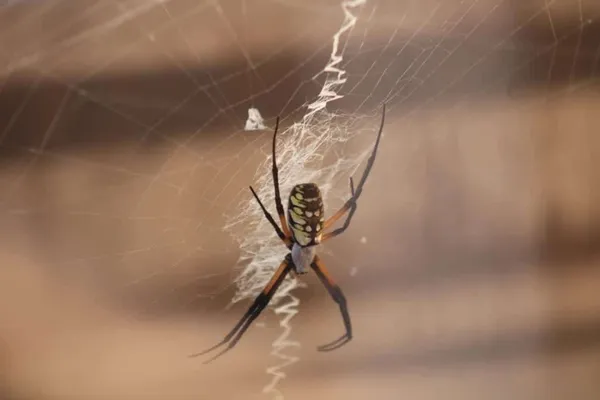
Spiders Identification Guide
Physical Characteristics
Spiders come in many sizes, colors, and appearances. They have eight legs, two body parts (the head-chest area and the abdomen), and fangs that inject venom. Most spiders have multiple eyes in distinct patterns. Wolf spiders have thick, hairy legs for hunting. Orb-weavers have thin legs for building webs.
Common Species
-
House Spider (Parasteatoda tepidariorum)
-
Wolf Spider (Lycosidae family)
-
Cellar Spider (Pholcidae family)
-
Orb-Weaver Spider (Araneidae family)
-
Black Widow (Latrodectus mactans)
-
Brown Recluse (Loxosceles reclusa) - Rare but possible
Spiders Behavior and Biology
Spiders are predators that eat insects and other small bugs. Most use venom to catch their prey, but only a few can harm humans. Web-building spiders create traps to catch food. Hunting spiders chase and pounce on their prey. Female spiders lay eggs in silk sacs. Some species guard their young until they can survive on their own.
How We Treat for Spiders
Spiders need a different approach than other crawling insects. They enter homes in many ways. Our process includes:
-
Inspection. We check for spider activity inside and outside your home.
-
Treatment. We apply a non-repellent product to exterior areas where spiders gather. This includes windows, doorways, and corners. We also treat high-activity areas inside.
-
De-webbing. We remove reachable webs (up to 6-8 feet high) to reduce spider numbers.
-
Ongoing Control. Our seasonal plan includes regular visits. We also share tips on reducing attractants like bright lights and moisture.
Types of Spiders
Click on any species below to learn more about identification, behavior, and control methods.
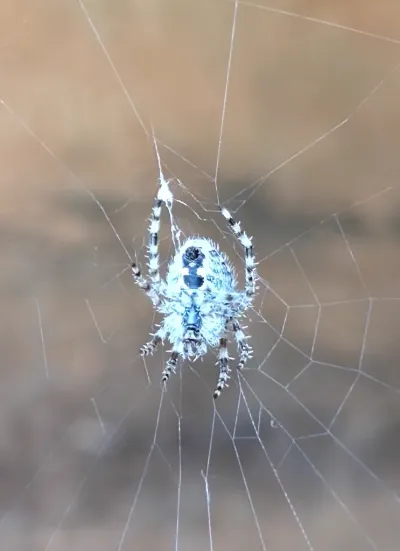
Barn Spiders
Araneus cavaticus
Barn spiders are orb-weaving spiders famous for building large, wheel-shaped webs in barns, sheds, and around homes. This nocturnal species inspired the character Charlotte in Charlotte's Web.
View identification guide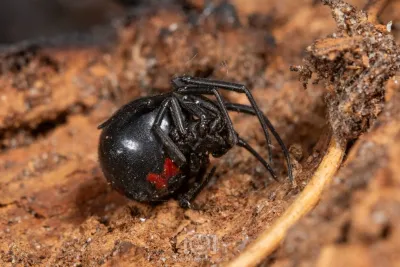
Black Widow Spiders
Latrodectus spp.
Venomous spiders recognized by their glossy black bodies and distinctive red hourglass marking. Black widows are reclusive but can deliver medically significant bites when disturbed, making professional identification and control important.
View identification guide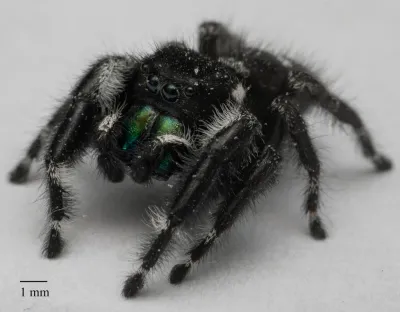
Bold Jumping Spider
Phidippus audax
The bold jumping spider is a common spider in North America. It has a black body with white spots and shiny green or blue jaws. These harmless spiders are often found on walls, fences, and sometimes inside homes.
View identification guide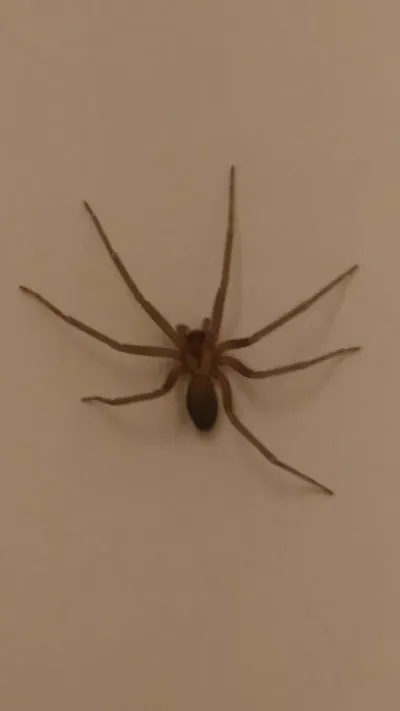
Brown Recluse Spiders
Loxosceles reclusa
Venomous spiders recognized by their distinctive violin-shaped marking and six eyes arranged in pairs. Brown recluse spiders prefer dark, undisturbed areas and can cause medically significant bites that may result in tissue damage.
View identification guide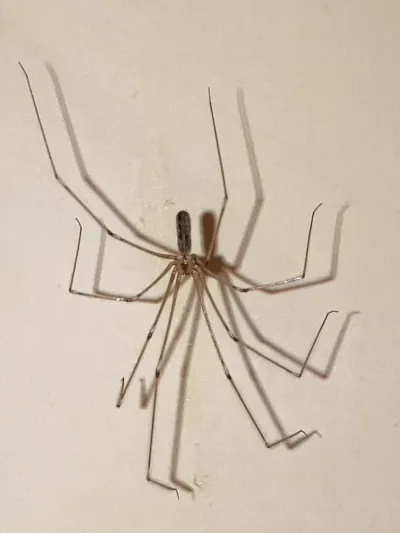
Cellar Spiders
Pholcus phalangioides
Cellar spiders, often called daddy longlegs spiders, are harmless arachnids commonly found in dark, quiet areas of homes. With their extremely long, thin legs and small bodies, they are frequently mistaken for harvestmen but are true web-building spiders.
View identification guide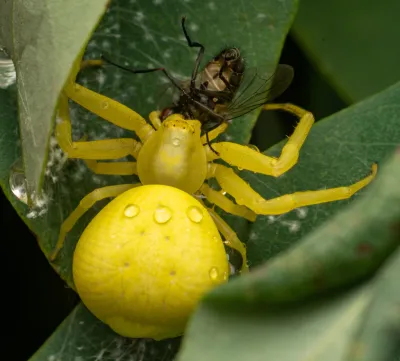
Crab Spiders
Thomisidae
Crab spiders are ambush predators found throughout North America that get their name from their crab-like appearance and sideways movement. These colorful spiders wait on flowers and foliage to capture pollinating insects without building webs.
View identification guide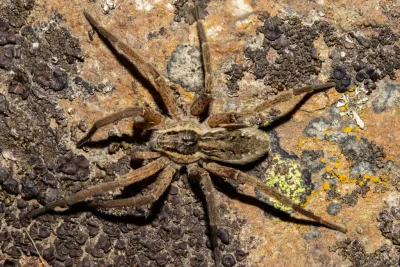
Fishing Spiders
Dolomedes spp.
Fishing spiders are large spiders that live near water in North America. They can walk on water and catch small fish, tadpoles, and insects. Though they look scary, they are harmless to humans.
View identification guide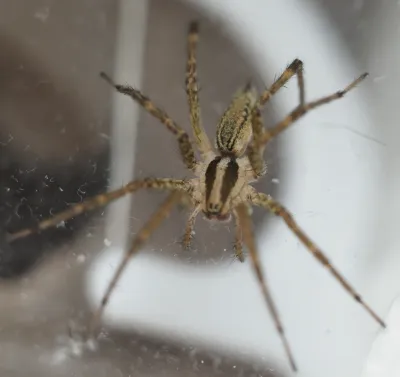
Funnel Weaver Spiders
Agelenidae
Funnel weaver spiders are common household spiders known for their distinctive sheet-like webs with tubular retreats. These fast-moving, harmless spiders include the barn funnel weaver and domestic house spider, often found in basements, garages, and dark corners of buildings throughout North America.
View identification guide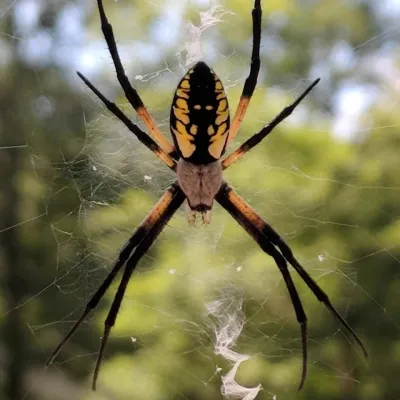
Garden Spiders
Argiope aurantia
Garden spiders, also known as yellow garden spiders or writing spiders, are large orb-weaving spiders recognized by their striking black and yellow markings. These spiders build circular webs in gardens and around homes, catching flies, mosquitoes, and other pest insects.
View identification guide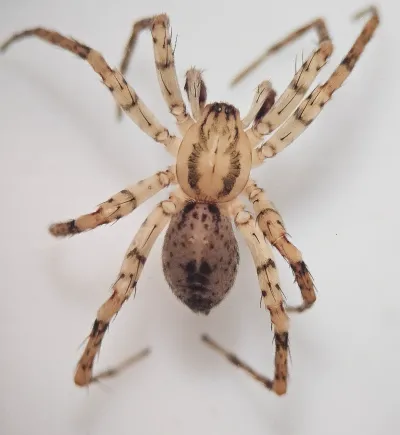
Ghost Spiders
Anyphaenidae
Ghost spiders are pale, fast-moving hunting spiders found throughout North America. Named for their translucent appearance and nocturnal habits, these agile predators do not build webs to catch prey. Instead, they actively stalk insects on plants and inside homes.
View identification guide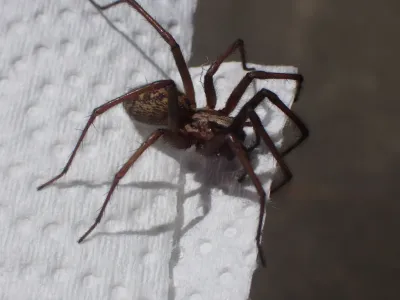
Giant House Spiders
Eratigena atrica
Giant house spiders are some of the largest spiders found in homes, with leg spans up to 4 inches. Despite their size, these fast spiders are harmless to humans and even help control hobo spider populations.
View identification guide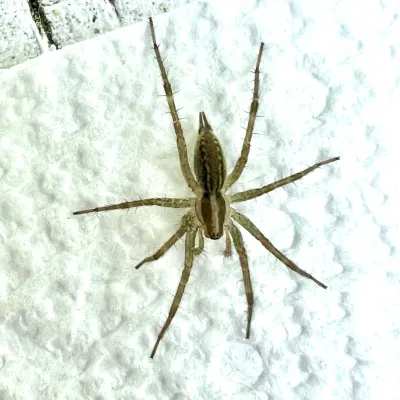
Grass Spiders
Agelenopsis spp.
Grass spiders are common funnel-web building spiders found throughout North America. Known for their distinctive sheet webs with funnel-shaped retreats, these fast-moving predators are frequently seen in lawns, gardens, and around home foundations. Despite their intimidating appearance, grass spiders are harmless to humans.
View identification guide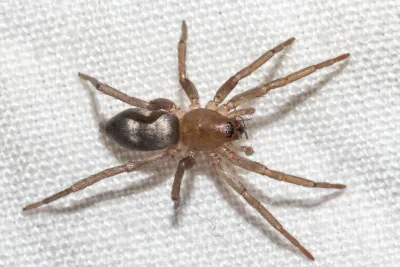
Ground Spiders
Gnaphosidae
Ground spiders are night-hunting spiders often found at ground level in homes and gardens. Unlike web-builders, they chase prey at night and hide in silk retreats during the day.
View identification guide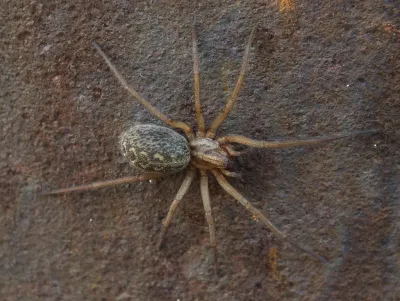
Hobo Spiders
Eratigena agrestis
Hobo spiders are medium-sized funnel web spiders native to Europe that have become established in the Pacific Northwest region of North America. Despite past concerns, current research indicates they are not medically significant to humans.
View identification guide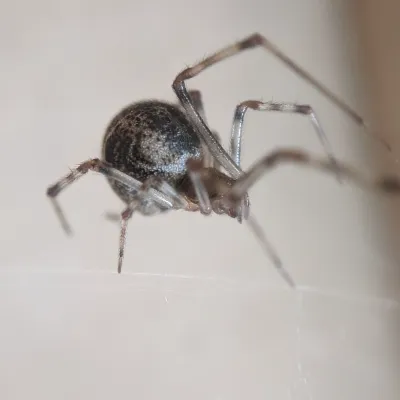
House Spiders
Parasteatoda tepidariorum
The common house spider is one of the most frequently encountered spiders in North American homes. These cobweb-building arachnids are harmless to humans and actually help control household insects, though their webs can become a nuisance.
View identification guide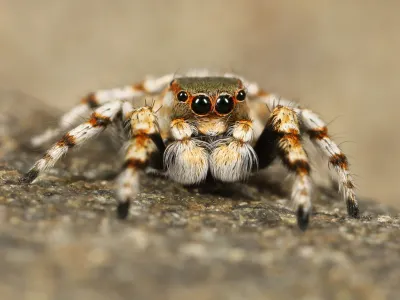
Jumping Spiders
Salticidae (Family)
Jumping spiders are compact, agile hunters known for their exceptional vision and ability to leap many times their body length. With their large, forward-facing eyes and curious behavior, they are among the most recognizable spiders found in and around North American homes.
View identification guide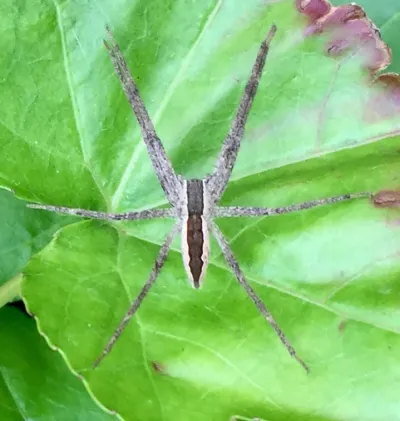
Nursery Web Spiders
Pisaurina mira
Nursery web spiders are large, long-legged hunting spiders found throughout eastern North America. Named for the protective silk nursery they build for their young, these spiders are harmless to humans.
View identification guide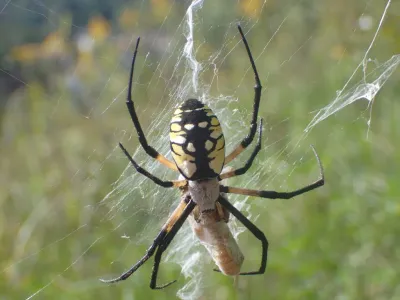
Orb Weaver Spiders
Araneidae (family)
Orb weaver spiders are master web builders known for their large, circular webs. These spiders are common in gardens and around homes throughout North America.
View identification guide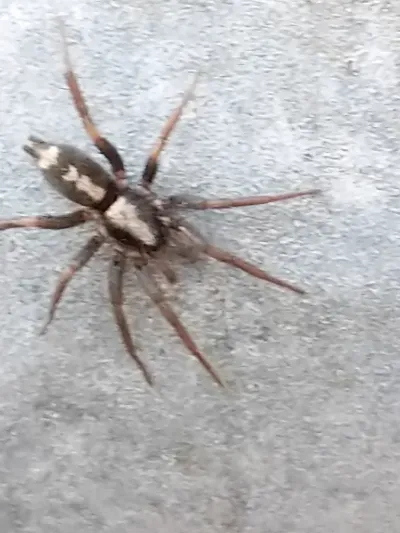
Parson Spiders
Herpyllus ecclesiasticus
Parson spiders are fast-moving, nocturnal ground spiders commonly found in homes across eastern North America. Named for the distinctive white marking on their abdomen that resembles a clerical collar, these active hunters chase down prey rather than building webs.
View identification guide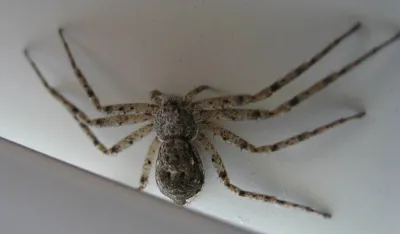
Running Crab Spiders
Philodromidae
Running crab spiders are fast-moving hunting spiders found throughout North America that catch prey by chasing it down rather than building webs. These agile spiders live on trees, shrubs, and low vegetation where they actively pursue insects.
View identification guide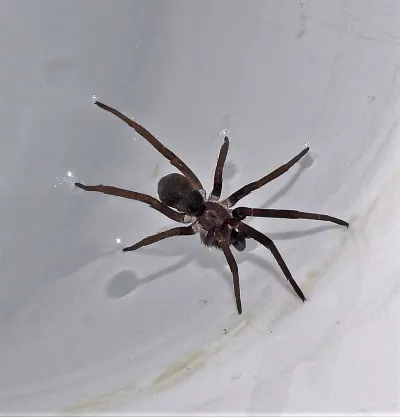
Southern House Spiders
Kukulcania hibernalis
The southern house spider is a common spider found in and around homes throughout the southern United States. Often mistaken for the brown recluse due to its similar coloration, this harmless spider builds distinctive tubular webs in cracks and crevices.
View identification guide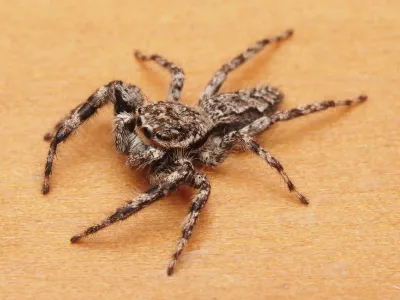
Tan Jumping Spider
Platycryptus undatus
The tan jumping spider is a common North American spider found on tree bark and building walls. It has a flattened, mottled tan body with wavy markings on its abdomen. These harmless spiders are skilled hunters often seen indoors.
View identification guide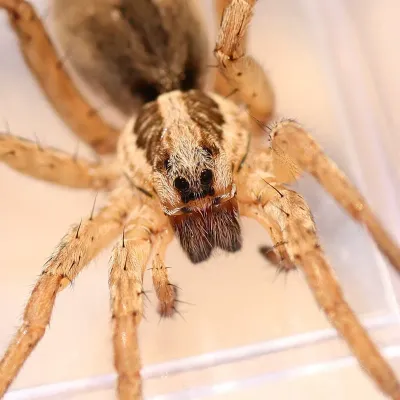
Wolf Spiders
Lycosidae
Wolf spiders are large, ground-dwelling hunting spiders found throughout North America. Unlike web-building spiders, these fast-moving predators actively chase and ambush their prey. While their size can be intimidating, wolf spiders are not aggressive toward humans.
View identification guide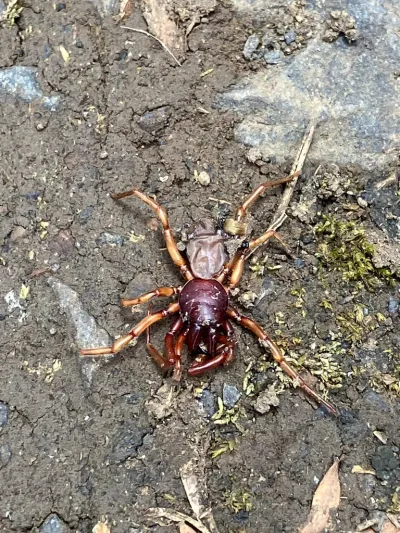
Woodlouse Spiders
Dysdera crocata
Woodlouse spiders are distinctive hunting spiders with large fangs specifically adapted for preying on woodlice (pill bugs and sow bugs). These reddish-brown spiders with cream-colored abdomens are commonly found in damp areas around homes throughout North America.
View identification guide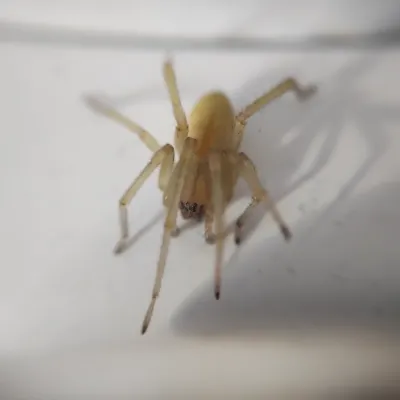
Yellow Sac Spiders
Cheiracanthium spp.
Yellow sac spiders are pale, night-active hunting spiders found in homes across North America. These small spiders build silk sacs in upper corners of rooms. They cause more indoor spider bites than most other species, but their venom rarely causes serious harm.
View identification guide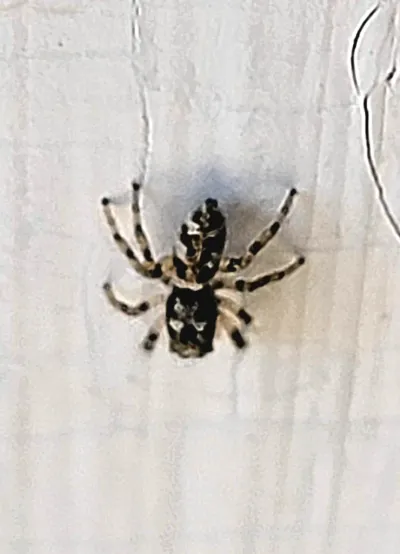
Zebra Jumping Spider
Salticus scenicus
The zebra jumping spider is a small, striped spider found throughout North America. Named for its black and white banding, this harmless spider is often spotted on sunny walls, fences, and window frames where it hunts small insects.
View identification guideCommon Questions about Spiders
How do spiders get inside my home?
+
Spiders enter homes through cracks, gaps in doors and windows, vents, and utility openings. Some are carried in on firewood, boxes, or plants.
Are spiders dangerous?
+
Most spiders are harmless, but some, like black widows and brown recluses, can deliver venomous bites. These bites are rare and usually occur when the spider is disturbed.
Will spraying for spiders eliminate them completely?
+
Spider treatments reduce their presence but do not create an instant eradication. Since they do not groom themselves like insects, direct contact with treated surfaces is necessary for control. Regular service is key to long-term results.
Do you remove spider webs?
+
Yes, we remove reachable spider webs (up to 6-8 feet high) during service visits. However, customers are encouraged to vacuum webs inside their homes for additional control.
What can I do to reduce spider problems?
+
Reducing exterior lighting, sealing entry points, managing moisture, and removing clutter can help deter spiders. Regular pest control treatments further reduce food sources and spider activity.
How often should I have my home treated for spiders?
+
We recommend tri-annual treatments (three times per year) to maintain a protective barrier and prevent re-infestations. This schedule also helps with other common household pests.
Will this treatment affect other pests?
+
Yes, our spider treatment plan also helps control other insects that serve as a food source for spiders, making it a comprehensive pest management solution.
Do you use strong chemicals to treat for spiders?
+
We have removed 9 of the harshest chemicals commonly used in the industry and instead use reduced-risk products like Essentria, Alpine, and Borate-based solutions. Our treatments are designed to be effective while considering environmental impact.
Can I cancel my spider treatment plan at any time?
+
Yes, we do not lock customers into contracts. You can cancel with 30 days' notice if you're not happy with the results.
More Resources About Spiders
Explore our guides and articles for more information about spiders.
- ›Wolf Spider vs Brown Recluse: Key Differences Explained
- ›Spider Mating Season Explained: Why Spiders Enter Your Home
- ›House Spider vs Wolf Spider: Which One Is in Your Home?
- ›Grass Spider vs Brown Recluse: Key Differences Explained
- ›How to Get Rid of Spiders: Easy Steps for Homeowners
- ›Spiders in Basement: Why They're There & How to Remove Them
- ›Are The Tiny Red Spiders Dangerous? How To Spot And Treat Them
- ›Hobo Spider vs Wolf Spider: Key Differences Explained
- ›Hobo Spider vs Brown Recluse: Key Differences Explained
- ›Spiders in Maryland: Types, Habits & Control Tips
- ›Brown Recluse vs Wolf Spider: ID Guide for VA Homeowners
- ›Spider Names Guide: Unique Species Identification Ideas
- ›Small Red Spider: What It Is and How to Get Rid of It
- ›Should I Kill a Black Widow Spider or Leave It Alone?
- ›Fishing Spider vs Wolf Spider: A Complete Comparison Guide
- ›How To Get Rid of Spiders in House: No More Webs & Crawlers
- ›Are Centipedes Dangerous? What Homeowners Need to Know
- ›House Centipede Eggs: Facts Every Homeowner Should Know
- ›Picture of a Tick: Identify, Treat, and Prevent Infestations
- ›What Does a Tick Look Like? How to Spot Ticks & Tick Bites
- ›Little Black Beetles in House? Identify & Treat Them Today
- ›Why Are Stink Bugs Called Stink Bugs? Mystery Solved!
- ›Grey Tick: What It Is and How to Treat It Around Your Home
- ›Centipede vs Silverfish: How to Tell Them Apart & Treat Them
- ›What Are The Tiny Red Bugs? How to Spot & Treat Clover Mites
- ›What Attracts Clover Mites to DC Homes: Causes Explained
- ›Carpet Beetle Bites: How to Know What's Biting You
- ›Signs of Carpet Beetles: How to Spot an Infestation
- ›Cellar Spider vs Daddy Long Legs: 5 Key Differences
- ›Is a Spider a Bug? Clearing Up a Common Confusion
Explore Other Pest Categories
Browse our comprehensive pest library for identification guides and control information.
With five years of hands-on experience in the pest control industry, George Schulz is a registered technician with the Virginia Pest Management Association and a proud third-generation professional in a family business that's been protecting homes for over 57 years.
Find Local Spider Control Services
We provide professional spiders control throughout Virginia, Maryland, and the DC Metro area.





